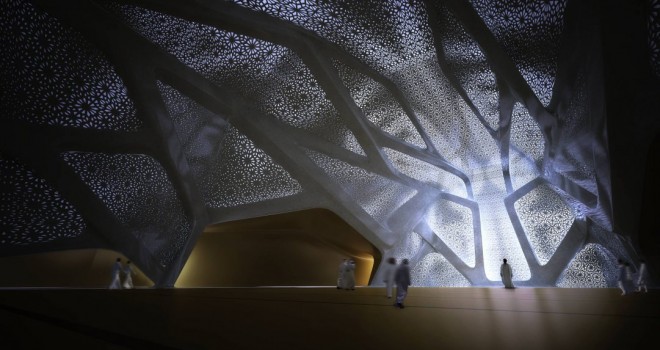
Does Islam Stand Against Science? 5/5
By now a new generation of scholars has concluded that the Muslim world did more than simply save and transmit Greek knowledge to the Europeans who later launched the Scientific Revolution. “Whole fields needed to be invented from scratch, such as algebra and the science of optics,” says Guessoum. “Medicine and astronomy were also greatly pushed forward.”
Edis, author of An Illusion of Harmony: Science and Religion in Islam (Prometheus Books, 2007), agrees that Muslim thinkers did more than just preserve Greek science, but he calls their work “proto-scientific.”
“It’s a mistake to think of this as analogous to modern science,” he says. “What Muslims were doing back then was still a medieval, prescientific intellectual enterprise. They never quite made the breakthrough, the Scientific Revolution, that took place in Europe.” Edis believes the Muslim world’s continuing obsession with its fabled past gets in the way of developing a living scientific culture.
Why, then, did the Scientific Revolution break out in Europe and not the Islamic world? Or, to put it another way, what caused the decline of science in the Muslim world? For the scholars who study Islam and science, it’s the one question that often elicits a sigh, then a long pause and a weary look, as if to say, Do I really need to answer that?
There’s no simple answer, though there are myriad explanations: the absence of universities in the Muslim world, the slow adoption of the printing press, the relative poverty of Muslims compared with Europeans, increasing deference to religious leaders, and more recently, the legacy of colonialism and the squelching of democracy.
Today’s scholars don’t blame Islam itself for the decline of science, but point instead to the culture of authority that pervades all aspects of the Muslim world, including science and religion. They suggest that the real story may be less about Islamic decline than about the rise of a newly prosperous and capitalist Europe. As Guessoum says, “Money always plays a role in science.”
Now, the deeper question may be whether science can ever flourish in Muslim countries without complete independence from religion. Edis, who is an atheist, considers this the defining quality of Europe’s Scientific Revolution, what allowed science to develop without constraints. Other scholars agree that scientific autonomy is needed, even though an entirely naturalistic understanding of the world cuts deeply against the grain of Muslim culture.
Some scientists who are practicing Muslims have adopted intellectual positions similar to those of prominent Christian scientists in the United States, such as Francis S. Collins and Kenneth R. Miller. They say science has its own rigorous methodology, but they still find intellectual space to believe in revelation and perhaps even miracles.
The French astrophysicist Guiderdoni, who studies galaxy formation, talks about finding meaning and beauty in the world of stars and planets, which he considers a manifestation of God’s will. Guessoum jokes about being one of the few Muslims who does not believe in miracles, and he invokes his own hero, the 12th-century philosopher Ibn Rushd (who became known in the West as Averroës): “He developed a model of harmony between philosophy and religion, which I have adopted for my own views on science and Islam.”
It’s quite possible that the Muslim world will still carve out a scientific domain that is completely separate from religion. “The category of science is a product of modernity,” says Hameed. And Muslim religious authorities, who for so long were the most educated people in their communities and thus the scientific authorities as well, are now playing catch-up with a new generation of technocrats and doctors. “That is the tension today as Muslims are getting educated,” says Hameed. “They are trying to understand where they fit in. What does it mean to be a Muslim?”
By Steve Paulson, published in The Chronicle of Higher Education, June 19th 2011.
Steve Paulson is executive producer of Wisconsin Public Radio’s nationally syndicated program To the Best of Our Knowledge. He is author of Atoms and Eden: Conversations on Religion and Science, published last year by Oxford University Press.

